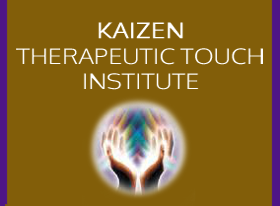 Understanding grief as the experience of loss is an important step in healing. Understanding healing as a process of moving into right relationship, towards wholeness, balance and harmony allows us to reframe the experience of loss and slow, perhaps even arrest the continual loss of energy, so common in the experience.
Understanding grief as the experience of loss is an important step in healing. Understanding healing as a process of moving into right relationship, towards wholeness, balance and harmony allows us to reframe the experience of loss and slow, perhaps even arrest the continual loss of energy, so common in the experience.
Often, when a friend or loved one is grieving, we may feel at a loss of what to say, how to be in their presence, leaving us to feel awkward, perhaps inadequate and frustrated in how we can best provide compassionate support in a time of great need.
The experience of loss can range from loss of job and the social identity that comes with it to the loss of a loved one or even one’s own good physical, mental or financial health, we formerly may have taken for granted.
Compassionate care and support of friends and loved ones begins with compassionate self-care and is important throughout the healing and recovery process from the experience of loss, otherwise known as grief.
Simply being present, completely present in body, mind and spirit for another, with compassionate intent to help or heal, is a gift of your presence that can initiate a deep healing process as Rachel Naomi Remen so eloquently expresses in this quote:
“The most basic and powerful way to connect to another person is to listen. Just listen. Perhaps the most important thing we ever give each other is our attention. When you listen generously to people, they can hear the truth in themselves, often for the first time.”
There may, in fact, be no need for you to speak at all. Simply saying, “I’m sorry” or “I love you” are powerful, life-affirming statements.
10 Helpful Guidelines to Help those Grieving

-
Remember your role… their is nothing that needs fixing and the outcome is always beyond your control.
Grief is not something that can be fixed. It is the normal, natural response to the loss of someone or something cherished. Simply being present with compassionate intent to facilitate acceptance of what is; inviting and allowing the expression of grief, otherwise known as mourning, will facilitate healing.
-
Distinguish between empathy, sympathy and compassion.
Falling into your friend’s pain and suffering is not helpful and will only add to her suffering. Emotional expression at a time of loss can be strong and powerful. Being able to be present and hold the space for someone’s expression of grief, without judgement or commentary, can support their healing process.
-
Active and deep listening is healing.
Listen without the need to speak or have any answers. Accept whatever feelings are expressed. Your friend may need to tell her story many times in various ways. Acknowledge what is being experienced with loving kindness. Be open and appreciate all that is being said, felt and conveyed.
-
Abide and accept emotions expressed.
Whatever emotions your friend may experience and express – whether sadness, anger, rage, resentment, guilt, fear, relief, depression, anxiety, peace, joy…the experience of loss can be emotionally complex and involve a range of emotions. Emotional expression is a healthy indicator that your friend is working through her experience of grief.
-
To be present is to attend – realize and value your presence
Be comfortable with silence. Compassionate presence is unconditionally present. Present no matter what and as such, simply being is enough.
-
Attune yourself to the situation
Sensing and attuning yourself to the dynamic of the situation helps to ground the excess “noise” or emotional static and tensions. Avoid clichés and easy answers which tend to trivialize the experience and increase suffering. A simple “I’m sorry…this must be so difficult” may be more comforting.
-
Create positive memories with ceremony
Remembering the loved one or whatever it was that was lost, designing and enacting a ceremony is a transformative experience. Ceremony has the potential to transform that which was experienced as lost into a rich memory honouring that which was loved and lived.
-
Stay in touch over an extended period of time
Adapting to change after the experience of loss can be slow. Memories and thoughts can trigger emotional recall and lead to a reliving of a painful experience. Grief does not necessarily end when someone returns to work, or after some period of time has passed. Having mourned (given expression through ceremony) to what was lost, has transformative, healing ability. When ceremonies are seen as rites of passage, that which was lost may have been effectively reframed and recognized as a catalyst for acceptance of that which now is.
-
Talk about the person who died or that which was lost
Naming the deceased or that which was lost, evokes, strengthens and honours the memory, now transformed. Share memories with your friend and gently invite them to engage in outside activities without forcing the issue. Grieving and mourning take a great deal of emotional energy that can leave those grieving in need of setting boundaries.
-
Honour special days
Acknowledge birthdays, anniversaries, special holidays and offer extra support during those times. It is possible, that when your friend or loved one needs help the most, they may be the least able to ask for it. Be sure to watch for trouble signs such as weight loss, depression or sleep disorders. Encourage your friend to seek integrative self health coaching should they occur.





